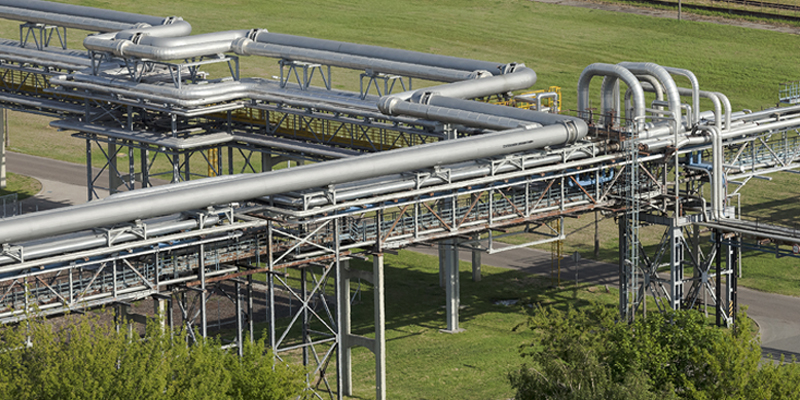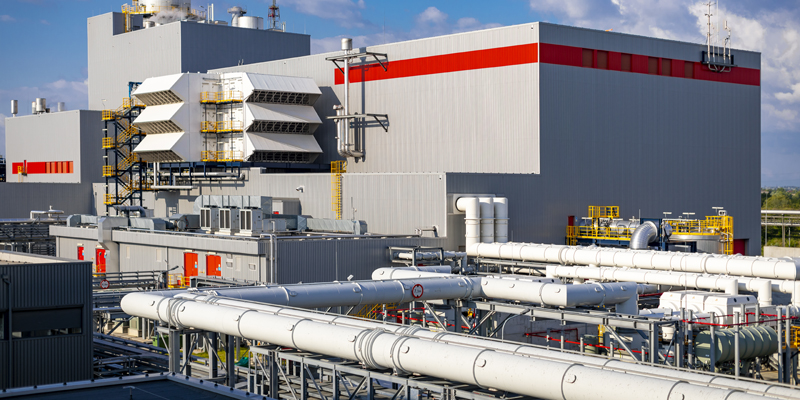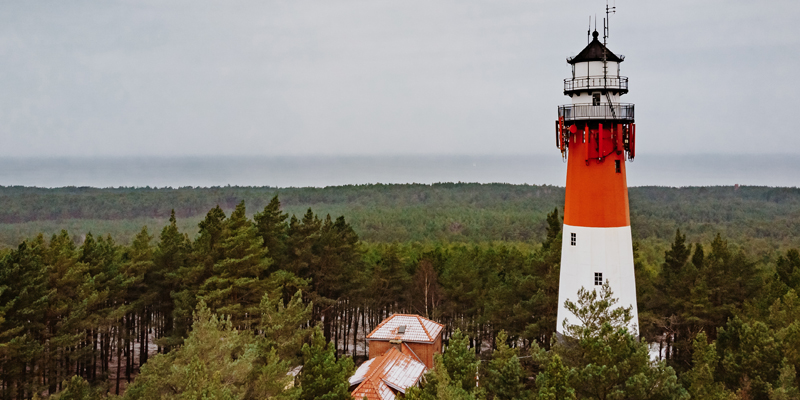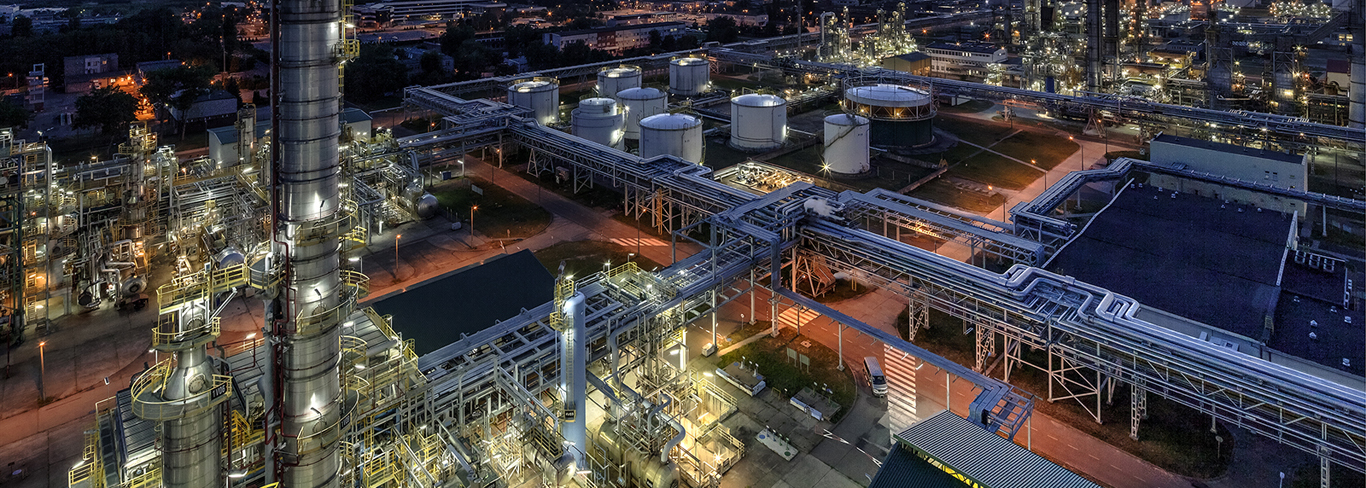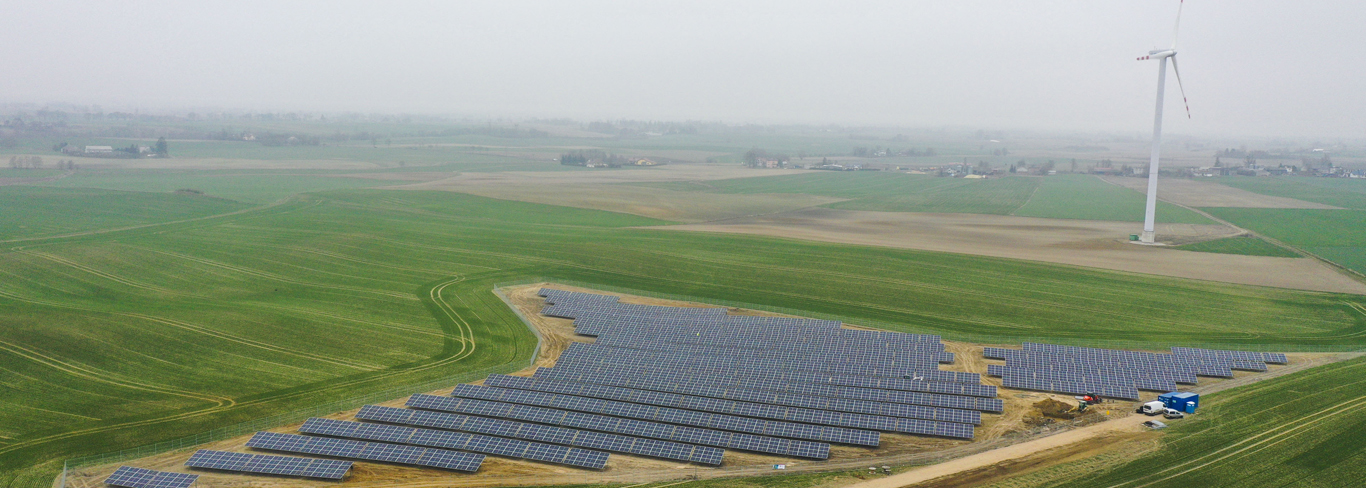
CLIMATE RESPONSIBILITY
Recognising the priorities and the direction of changes outlined in the European Union climate policy, we develop our business on the basis of innovative, low-carbon technologies and products, invest in the best available environmental techniques (BAT), and make our business decisions taking into account the principles of circular economy.
We improve our processes on an ongoing basis and we set ourselves ambitious goals – we are committed to achieving a net zero carbon footprint by 2050 based on four pillars: energy efficiency in production, zero-emission power generation, fuels of the future, and green finance.
Reducing the environmental footprint has long been one of the ORLEN Group’s top priorities. Our approach to environmental protection management is based on the principles of corporate social responsibility and takes environmental criteria into account. We aim for sustainable development and we report the results of our environmental protection efforts. Our environmental objectives are set out in the Integrated Management System Policy.
Key ORLEN Group companies have Integrated Management Systems or Environmental Management System Policies in place, incorporating a commitment to protect the environment, which includes preventing pollution, and hold all permits required by law for their operations.
Environmental initiatives are also carried out by the Water and Wastewater Management Office and the Power Generation Area.
Climate change has become the key factor driving sustainability management at the ORLEN Group in 2020. The activities we undertook in the area of management of climate-related issues were in line with the expectations of our stakeholders, who identified this problem as highly relevant during the dialogue session. Our management standards and systems mitigating direct environmental impacts have evolved towards strategic measures reducing the Group's contribution to climate change, as well as adaptation of the business models to address the effects of the physical consequences of climate change on the Company's assets.
In an effort to improve climate and sustainability management processes, in January 2020 we created the Sustainable Business Development Department within the Strategy, Innovation and Investor Relations area, which is overseen by the Executive Director of Strategy, Innovation and Investor Relations, reporting directly to the President of the Management Board.
In 2020, PKN ORLEN announced a decarbonisation strategy, including specific commitments to reduce emissions and achieve climate neutrality. Sustainable development plays an important role in the process of building a multi-utility group and implementing the ambitious agenda under the ORLEN Group's business strategy until 2030. The new business strategy is a response to the changes in our environment driven by the global climate crisis. It ensures resilience of our business models to climate change and its consequences across the value chain. Over the next decade, PKN ORLEN will allocate PLN 30m to sustainability projects, including new business models.
During the year, we also commenced scenario analyses of the impact of our operations on climate change, and assessed the effect of new national and EU climate-related regulations on our existing and new business models.
To further strengthen its sustainability management systems, in Q3 2020 the ORLEN Group commenced work to define its new strategic directions of sustainable development, which are intended to support achievement of the business objectives under the 2030 Strategy and decarbonisation strategy, and define the Company's goals and ambitions in the area of ESG (Environmental, Social and Corporate Governance). Work on the document is planned to be completed in the second half of 2021.
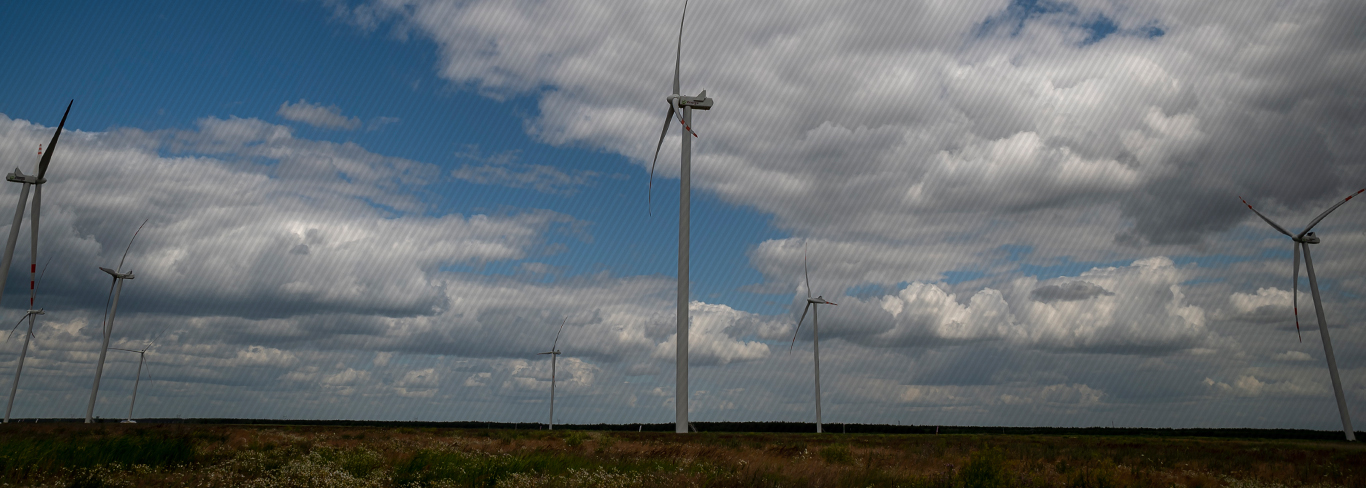
Long-termimpact
Our activities designed to benefit the natural environment are of a long-term nature. A case in point is improvement of the efficiency of the water and wastewater management in our industrial units. At the ORLEN production plant in Płock, the water withdrawal volume was reduced by almost half, from nearly 50 million cubic metres in the 1980s to 27.7 million in 2018. The volume of wastewater discharged also went down: from 40 million to 14,1 million cubic metres, despite a significant increase in crude throughput. In recent years, the ORLEN Group's production assets in Poland, the Czech Republic and Lithuania were subject to a number of measures to mitigate the environmental impact of its operations. Examples include CCGT units, relying on of one of the most advanced technologies that is characterised by high efficiency, low emissions and minimum impact on other environment components (it is based on natural gas, and environmentally friendly and low emission fuel).
Climate responsibilityclimate change risks and opportunities
Climate change poses a significant challenge to PKN ORLEN and the ORLEN Group companies. The global energy transition that is taking place before our eyes is a huge development opportunity for Central Europe. As the largest company in the region, we want to increase our involvement in this process.
PKN ORLEN has addressed this challenge by announcing in September 2020, as one of leaders in Central Europe, an intention to achieve net zero carbon footprint by 2050. In furtherance of this goal, the Group aims to reduce carbon emissions from its existing refinery and petrochemical assets by 20% and cut down carbon emissions per megawatt-hour of electricity by 33% by 2030. PKN ORLEN’s net zero emissions strategy is based on four pillars: energy efficiency in production, zero-emission power generation, fuels of the future, and green finance.
In order to achieve emissions neutrality by 2050, we are going to focus on the following objectives:
- expansion of the renewable energy asset base
The Group’s renewable capacities are expected to reach more than 2.5 GW in 2030 (2019: > 0.5 GW), mainly by rapid development of offshore and onshore wind and solar photovoltaic assets.
Currently, our key renewables project is the construction of an up to 1200 MW offshore wind farm. It is an extremely complex venture, and PKN ORLEN is one of the pioneers in this type of projects on the Polish market.
ORLEN also plans to engage in further onshore wind farm and photovoltaic installation projects to increase the portfolio of such assets by at least 800 MW by 2030.
- implementation of decarbonisation projects
Within ten years, we will implement more than 60 projects increasing the energy efficiency of our existing production assets. The new downstream projects will use the best and most emission-efficient technologies.
- development of low-emission biofuels
We intend to launch five large biofuel and biogas projects and thus grow our production capacities by more than six times by 2030.
The ORLEN Group is strengthening its position as a regional leader in alternative fuels by implementing a number of significant investment projects related to the manufacturing of biofuels such as HVO, co-HVO, UCOME, lignocellulose bioethanol and bio-methane, which are expected to increase our biofuel output by some 500 thousand tonnes annually by 2030.
Furthermore, a number of projects are being carried out under the ORLEN Południe’s strategy until 2025 with a view to transforming the plant into a biorefinery.
- development of electric vehicle charging infrastructure
Leveraging the synergies with the ENERGA Group, the ORLEN Group seeks to expand its alternative fuel infrastructure and plans to operate more than 1,000 fast EV chargers by 2030.
- development in other alternative fuels: LNG / CNG, H2
The ORLEN Group will pursue comprehensive development of its production and distribution infrastructure and will promote growth of the hydrogen and alternative fuels market, especially in urban, long-distance and railway transport.
- circular economy
We will also invest in recycling and related circular economy activities, with a goal of reaching plastics recycling capacity of 0.3–0.4 million tonnes by 2030.
- implementation of pilot projects
The ORLEN Group intends to launch pilot projects for selected technologies supporting CO2 emissions reduction: green H2, CCS, biomethane.
- “Green” financing and corporate governance
We aim to become a regular issuer of green bonds and a leader of sustainable development, using corporate mechanisms to promote and achieve ESG (environmental, social and governance) objectives.
Thanks to investments improving the energy efficiency of the refining units in Płock (Poland), Litvinov (the Czech Republic), and Mažeikiai (Lithuania), a major part of CO2 emissions are now covered by free allowances. PKN ORLEN is aware of the climate and regulatory pressures and the gradual reduction in the number of free allowances, which was one of the main arguments behind the setting of the reduction targets indicated above.
Pillars for building a state-of-the-art low carbon multi-utility group
The net zero footprint in 2050 was included in the ORLEN2030 Strategy announced in November 2020 as a commitment to reach this long-term goal. PKN ORLEN's net zero emissions strategy is a milestone document, defining the Company's approach to business in the coming decades. The global energy transition that is taking place before our eyes is a huge development opportunity for Central Europe. As the region’s largest company, PKN ORLEN wants to increase its engagement in this process and is well positioned to achieve this goal. By 2030, PKN ORLEN we will have invested more than invest some PLN 25bn in projects designed to mitigate its environmental impacts and open it up to new business models. The emission neutrality strategy is based on the business pillars in which PKN ORLEN already has extensive experience and a strong market position.
Investments oriented towards the net zero target include both emissions efficiency improvement efforts in existing business segments and the development of new areas. Within ten years, the company will implement more than 60 projects increasing the energy efficiency of its existing production assets. The new refining and petrochemical projects will use the best and most emission-efficient technologies. PKN ORLEN also intends to strengthen its position as a regional leader in biofuels by implementing five significant investment projects related to the manufacturing of biofuels such as HVO, co-HVO, UCOME, lignocellulose bioethanol and bio-methane. The projects are expected to increase biofuel output by some 500 thousand to approximately 2 million tonnes annually by 2030.
The Group’s key growth area over the next decade will be power generation, based mainly on renewables and supported by gas-fired sources. By 2030, the Group intends to achieve 2.5 GW of installed RES capacity, including 1.7 GW in offshore wind farms and 0.8 GW in onshore (wind power and solar PV) sources. The target fivefold increase in RES capacity is based on the assumption that Baltic Power’s ongoing offshore wind farm project, executed through a joint venture partnership, will add up to 0.6 GW to the Group’s generation capacity. (the project’s total capacity will be up to 1.2GW).The ORLEN Group will also increase the installed capacity of its modern gas-fired power plants from today’s 1.1 GW to 2.0 GW. The generation capacity will be supported by the Group’s extensive and modern distribution network, allowing it to reach a broad base of retail customers and generating a steady stream of profits. The Group will also build energy storage facilities on a pilot basis to optimise the costs of electricity distribution over 2.0 GW. In the context of energy transition, a major advantage offered by such assets is the ability to flexibly respond to shifts in electricity demand and variable supply from renewable sources.
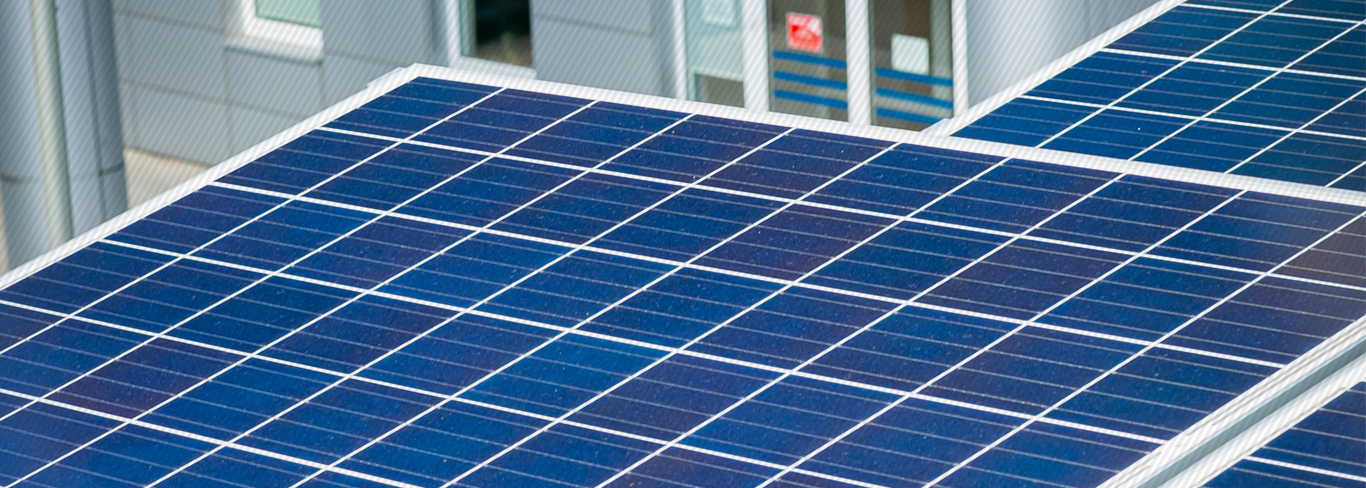
As part of the expansion into new business areas, the focus will be on the development of low- and zero-emission generation sources, including primarily wind power and solar photovoltaics. The ORLEN Group will also develop hydrogen technologies and expand its distribution network for alternative fuels.
The construction of an offshore wind farm is an extremely complex venture, and PKN ORLEN is one of the pioneers in this type of projects on the Polish market, which means that we have no established legal and administrative paths to use. This was one of the reasons why we decided to select an industry partner – Northland Power. By leveraging the partner’s know-how and experience, we want not only to avoid potential errors, but primarily to optimise the project in line with global standards towards maximum efficiency. The preliminary engineering and building permit design will be prepared by Offshore Design Engineering Ltd. This UK-based company has more than 20 years of experience with such assignments And has designed offshore wind farms for the world’s largest companies and project owners. Its portfolio includes offshore wind farms with a capacity of nearly 8 GW in the UK, and 3.2 GW in North European seas. Its wind farm projects in other parts of the world have an aggregate capacity of 2.6 GW.
The ORLEN Group is also developing solar photovoltaic projects. A tender procedure was launched for the construction of the first 2 MW solar photovoltaic farm located at the CCGT unit in Włocławek. On a lesser scale, since 2017 solar photovoltaic units have been operating at 11 service stations. The technical documentation for the next 30 stations has already been prepared.
Moreover, ORLEN intends to transform the ORLEN Południe plants into a biorefinery. Investments made for the Trzebinia and Jedlicze plants include projects relating to the green glycol unit, UCO FAME production assets, second-generation bioethanol complex, and upgrade of the biodiesel unit. ORLEN Południe will also launch a new business line: biogas plants. In addition to the above projects, ORLEN Południe operates a lubricating oil regeneration unit, which makes it possible to market recycled oils.
Green and sustainablefunding
At the end of 2020, PKN ORLEN issued 10,000 sustainability bonds with a total value of PLN 1bn and a margin of 90 basis points per annum in the first interest period. The margin in subsequent interest periods will depend on the company’s ESG rating from MSCI ESG Research Limited. The bond issue attracted strong interest from investors – in the bookbuilding process they placed subscription orders for PLN 2.2bn worth of bonds, more than twice their total nominal value. This is the first issue of corporate bonds linked to the issuer’s ESG rating in Central Europe. The ESG rating reflects the issuer’s commitment to sustainable development and responsible business, and will determine the level of the margin, and thus the interest rate on the bonds. The issue proceeds will be used by PKN ORLEN to finance ongoing investment projects consistent with the company’s strategy to achieve carbon neutrality by 2050. PKN ORLEN has secured very good terms of financing – the interest rate is the lowest in its operating history and the margin is the lowest since the 2008 financial crisis. The new bonds were rated BBB - by Fitch Ratings.
Opening upto alternative fuels
For years PKN ORLEN has consistently reduced its environmental impacts by investing in best available techniques in the area of environmental protection and following the principles of sustainable development. PKN ORLEN is fully aware of the challenges posed by the need to develop the alternative fuel sector. This is particularly relevant to the reduction of emissions from the use of products by end users (scope 3 GHG emissions).
PKN ORLEN wants to be the leader of the Polish market for hydrogen as transport fuel. The dynamic macro-scale changes in the fuel market clearly indicate that hydrogen is going to be readily accepted and widely used, especially in public as well as heavy and rail transport. Therefore, PKN ORLEN has been increasing investments in this area year by year, and has taken steps to develop hydrogen use, as evidenced by the cooperation with representatives of the entire hydrogen value chain and the letters of intent for the development of zero-emission public transport signed with local authorities and manufacturers of hydrogen-powered vehicles. A few letters of intent have been signed to date, with further ones being prepared.
2020 was a period of intensive development of hydrogen technologies for the Company. Currently, work is underway to build a hydrogen purification system and hydrogen hub in Trzebinia, where automotive grade hydrogen production will start by the end of 2021. In September 2020, PKN ORLEN announced a tender for the construction of a hydrogen hub in Włocławek with a target capacity of 600 kg/h, which is expected to give the company the leading position on the Polish market of automotive-grade hydrogen fuels. In the case of the Włocławek plant, the hydrogen from existing electrolysis units will be purified and used as fuel in transport.
ORLEN is already a significant producer of biofuels in the region, working on the development of technologies for obtaining biofuels from cellulose raw materials, vegetable and used cooking oils, as well as biogas production.
The Company is also implementing a project to install fast chargers for electric vehicles at its service stations. Currently, PKN ORLEN has 83 publicly available 50 and 100 kW fast charging stations in Poland, and more than 50 chargers operated by Energa Obrót. By the end of 2021, PKN plans to operate approximately 150 fast charging stations across Poland, and an additional pool of lower-powered chargers which are put in service as Energa Operator develops its network.
Circulareconomy
Going forward, recycling will emerge as a new branch of the petrochemical segment. In accordance with the strategy until 2030, the ORLEN Group will expand its recycling capacity (mainly in plastics) up to 0.4 million tonnes. We will also implement advanced circular economy technologies.
Circular economy and recycling represent the strategic development direction for the ORLEN Group for the coming decade, as set out in the ORLEN2030 Strategy.
Recycling is a strategic development focus for the ORLEN Group
By 2030, the ORLEN Group will build a major portfolio of recycling projects.
PKN ORLEN engages in various projects and programmes designed to replace fossil fuels with alternative and waste-based solutions. These include:
- Upcycling – increased use of waste materials in PKN ORLEN's core business.
- Utilisation of municipal and industrial waste to produce petrochemical intermediates.
- Implementation of technologies for mechanical and chemical recycling of plastics at PKN ORLEN and other Group companies, i.e. ORLEN Unipetrol and ORLEN Eko;
- Use of the waste oil regeneration unit operated by ORLEN Południe, where used engine oils are recycled into base oil components.
- Use of the potential of proprietary brand products sold at ORLEN Group stations – the Stop Café food products prepared at the stations are sold in packaging that is made of a single material or two materials and bears special signs to facilitate segregation of waste. The products of our Verva and Stop Cafe brands are marked with our own signs conveying information on the waste type using colours. This supports education of consumers, who receive guidance on the col our of the waste bin in which to place a given material. We created our own icons for this type of signage.
Wastemanagement
In recent years, PKN ORLEN has strongly developed in new business areas, but also emerged as a leader of consolidation in the Polish energy and fuel sector. Once completed, the planned acquisitions will allow the Company to take full advantage of the new opportunities offered by global energy trends and consistently build company value in the long term. And all this with due regard to the natural environment and the declared net zero footprint in the coming years.
Environmental effortsin 2020
Following a review of ORLEN Group’s chemical facilities in terms of meeting the requirements of the BAT LVOC Conclusions, steps were initiated to adapt the facilities to the Conclusions’ requirements pertaining to the petrochemical industry. PKN ORLEN and the ORLEN Group companies are obliged to take pro-environmental measures in the legal, investment and organisational spheres of its operations. Such measures include the deployment of a leakage detection and repair (LDAR) system in the Group’s petrochemical units and facilities, and analyses to develop an odour management plan. In 2020, with respect to refining facilities, verification measurements were continued as part of the LDAR system maintenance, confirming high leak tightness of the facilities.
Towards the end of 2019, the European Commission issued Commission Implementing Decision (EU) 2019/2010 of November 12th 2019 establishing the best available techniques (BAT) conclusions, under Directive 2010/75/EU of the European Parliament and of the Council, for waste incineration. In 2020, ORLEN Eko and ANWIL analysed the impact of the regulation on their operations and took steps to adapt to the new guidelines.
NIT
The ORLEN Group runs a strategic biofuel programme whose main objective is to prepare PKN ORLEN for contributing to the achievement of the National Indicative Target. The measures planned to achieve the NIT take into account the guidelines provided for in the RED II Directive, e.g. reaching the following content of advanced biocomponents in fuels: 0.2% (of the energy content of fuels) by 2024, 1.0% in 2025, 3.5% in 2030. The task is to be made easier by investments in the following projects: use of bioethanol from waste feedstock, construction of a standalone unit for hydrotreatment of vegetable and waste oils in Płock in 2024, implementation of the co-hydrogenation technology at all ORLEN Group companies, a new unit for the production of esters from waste oil, and cellulose bioethanol (30,000 m3at ORLEN Południe). Furthermore, other advanced biocomponent projects are being considered.
The amended Act on Biocomponents and Liquid Biofuels adopted by the Polish Sejm on July 19th 2019 sets out the legal framework for including biomethane as a biocomponent counted towards the National Indicative Target. Work is underway at the Ministry of Climate to define the rules for the operation of the biomethane market and the relevant settlement system.
EU ETS
The participation of PKN ORLEN and other ORLEN Group companies that are subject to the EU regulation establishing the greenhouse gas emission allowance trading scheme (the EU ETS Directive) forms part of the EU climate and energy package.
Directive 2003/87/EC of the European Parliament and of the Council established a scheme for greenhouse gas emission allowance trading within the Community to promote reductions of greenhouse gas emissions in a cost-effective and economically efficient manner. In December 2020, EU countries agreed to increase their CO2 reduction target from the current 40% to no less than 55% in 2030. It was agreed that all sectors of the economy should contribute to achieving the emissions reduction target and that it should be met in the most cost-effective manner through the EU ETS.
The changes to regulations agreed on in recent years, designed to address the issue of oversupply of CO2 emission allowances on the market, are having an impact on our installations. Since the publication of the MSR surplus indicator and the revision of the EU ETS regulations, auction volumes have been significantly reduced.
Last year, ORLEN Group companies applied for free allocation of CO2 emission allowances for their installations participating in the EU ETS for another trading period. The applications are pending approval by the Commission.

Environmentalcompliance
All ORLEN Group companies hold the necessary permits required by law to conduct their business.
Operations of the Płock production plant are regulated under three integrated permits, which cover all units, i.e. the refinery, petrochemical plant, CHP plant, central wastewater treatment facility and CCGT unit. PKN ORLEN also holds two integrated permits required for the operation of the PTA and CCGT units in Włocławek.
The permits define emission limits which are safe for the environment and human health and whose observance is subject to monitoring. Emission volumes from 16 of the plant’s emitters are measured on an ongoing basis; measurements from the other emitters are taken periodically. In addition, PKN ORLEN has a modern automated air quality monitoring station fitted with state-of-the-art instruments, which constantly measures the concentrations of selected substances in the air. Measurements are automatically uploaded to a database maintained by the Provincial Inspectorate of Environmental Protection (WIOŚ) and published on the Chief Inspectorate of Environmental Protection’s (GIOŚ) website.
Integrated permits and sector permits need to be updated on an ongoing basis in order to keep up with the evolving legal environment and business needs. In 2020, we secured amendments to our integrated permits, enabling adaptation of the Płock plant’s petrochemical installations to BAT conclusions for LVOC processes (for instance, derogations from prescribed time limits were obtained to allow for timely completion of the investment and modernisation programme) and adaptation of the CCGT unit in Płock to BAT conclusions for LCP.
As regards CO2 emission permits, in 2020 we obtained an amendment of the monitoring plan for the Refining installations.
Applications for amendment of integrated permits were submitted with respect to the Włocławek PTA unit (adaptation to BAT conclusions for LVOC processes and waste management regulations) and CCGT unit (adaptation to BAT conclusions for LCP). We also applied for amendment of CO2 emissions permits for the refinery and the ethylene oxide and glycol units.
117 water-law permits were obtained altogether for PKN ORLEN service stations and fuel terminals in 2020.
For a description of the policies applied in the environmental area, see ‘Policies and internal regulations’ .
Environmental compliance of the ORLEN Group’s activities last year was verified by the Płock and Włocławek Branches of the Provincial Inspectorate of Environmental Protection, which carried out four inspections. Three of them detected no irregularities. In the case of one intervention, PKN ORLEN rejected the inspection findings and refused to sign the report. A total of 25 inspections were completed within the regional structures of PKN ORLEN (fuel terminals and service stations) by competent environmental authorities. Five follow-up orders were issued as a result of the inspections, requiring PKN ORLEN to update the notification of its liquid fuel storage and handling facilities and to perform wastewater quality tests on a relevant number of samples. These requirements were fulfilled.
In 2020, 57 environmental inspections were carried out at ORLEN Group companies, resulting in five follow-up orders regarding purchase of professional anti-oil barriers, to be used in the case of an emergency to prevent the release of substances into the aquatic environment, and formal and legal regulations at Energa Kogeneracja Sp. z o.o; transfer of waste stored at ORLEN Południe S.A. to a licensed third-party operator for disposal, and an update to the permit and entry in the Waste Database.
As a result of the inspections carried out by competent authorities, ORLEN Południe was fined EUR 1,125 for storing waste in breach of the provisions of the permit for operation of the waste oil regeneration plant.
Environmental feesand charges
Under the EU law, an entity using the natural environment and discharging substances to the environment is required to pay relevant fees pro rata to the type and scale of its environmental impact.
In Poland, the obligation to pay environmental fees is imposed by the Environmental Protection Law, which requires plant operators to pay for air emissions of gases and particulate matter and for waste storage. Payment of fees for discharging effluents to water and soil and for water abstraction is governed by the Water Law.
In 2020, ORLEN Group companies paid environmental fees for air emissions, water withdrawal, discharge of effluents to water and soil, and storage of waste in own landfills in a timely manner. Therefore, there were no additional payments resulting from failure to correctly calculate the fees or to meet the payment deadline. The amounts to be paid were calculated based on the unit rates of fines for a given type and quantity of water abstracted from the environment and the type and quantity of air emissions and effluents discharged to water. It is those environmental impacts that had the largest share in the fee amounts paid by ORLEN Group companies. Fees for the storage of waste in own landfills represented a small fraction of the total.
An over 2% year-on-year decrease in the total amount of environmental fees was reported in 2020.
The largest contributor to this change was the lower amount of fees for water withdrawal by the Czech companies of the Group.
In 2020, the aggregate amount of environmental fees was slightly below EUR 13.9 million.
Environmental fees at ORLEN Group companies
|
Type of fee |
Amount [EUR] |
change % |
|
|
2020 |
2019 |
||
|
Total air emissions |
5,265,081 € |
4,871,093 € |
8.09 |
|
Water withdrawal |
7,709,365 € |
8,643,000 € |
-10.80 |
|
Discharge of effluents |
817,017 € |
620,635 € |
31.64 |
|
Landfilling of waste |
44,491 € |
45,238 € |
-1.65 |
|
Total |
13,835,954 € |
14,179,966 € |
-2.43 |
The incorporation of Energa Group companies into the ORLEN Group had the greatest impact on the increase in fees for discharging effluents and rainwater to the environment. The fees paid by the Energa Group amounted to over EUR 96,000.
Climate change risksand opportunities
In 2020, the ORLEN Group commenced scenario analyses of the transition (regulatory) risks and physical climate change risks, taking into account the dual materiality perspective. The declarations and commitments reducing the impacts of the ORLEN Group's operations are described above in the discussion of the decarbonisation objectives and sustainable development initiatives under the ORLEN2030 Strategy.
The analyses led to the initial identification of transition risks and physical risks in the short and long term. The activities will be continued in the next years.
Transitionrisks
The ORLEN Group analyses new regulations resulting from the European Green Deal on an ongoing basis and adjusts its business models accordingly. The ambitious agenda of the ORLEN2030 strategy is a strategy designed to capture the opportunities created by Europe's economic transformation which aims to meet the obligations under of the Paris Agreement and implement the UN Agenda 2030.
Changes resulting from the European Commission's update of the climate agenda
Physical climatechange risks
Based on an analysis, constraints on availability of water have been identified as the most probable physical risk for Poland that may affect the ORLEN Group in the short term (by 2030). The findings of the analysis rate this risk as low to medium. The risk is mitigated by the location of the ORLEN Group companies. The Płock refinery’s water intake point is situated in the widest and deepest part of the Vistula, before a dam, so the risk of water availability constraints is minimal. Water intake points are secured. The measures undertaken by PKN ORLEN in the water management process since the 1980s have brought the expected results and effectively mitigate the risk. Below is presented an overview of water and wastewater management at PKN ORLEN.
For more information about water and wastewater management at the ORLEN Group, see ‘Water and wastewater management’.
ORLEN Group is working on integration of the risks identified in the process of analysis with the enterprise risk management system.

